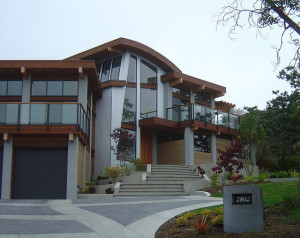If you own your own home, you may live in a state of constant worry about keeping it in good shape. Every year, we face repair or maintenance bills to keep the building in good condition and to keep us safe, warm and dry. Often we find these bills can get very expensive, especially for those jobs we have put off too many times. The trick is to deal with a problem as soon as we realize we have it. You can also spend a little time each month doing some vital checks to ensure everything is in order:
Roof – Look up. Start with the front of your house outside. Look up and see if any part of the roof looks wrong. There may be a missing tile, or a slate is wonky. Perhaps part of the chimney has crumbled away. These are all things that must be addressed immediately by a professional roofer. Now pop up into your attic or loft with the light off. If you can see daylight, contact a roofer immediately. Water could get in and cause a great deal of damage, or you may be vulnerable to further exposure from high wind. Lastly, check all your upstairs ceilings and tops of walls to see if any water has been penetrating.

Walls – On a cold day, have a feel along your walls. Any particularly cold spots may require additional cavity insulation. This can be done professionally, or you can try and have a go yourself. Check for any damp along the skirts of the downstairs walls. If damp is rising, you could suffer poor health and the building could become dangerous. Check the brickwork is in good condition outside. The cement between the bricks should be in good order too. Keep ivy and other foliage away from the building to protect vulnerable corners.
Floors – If your floors are cold or damp, look at having them professionally replaced. If you have suffered any flood damage, visit the Phoenix Water Damage Experts Website to see if you need expert help immediately. Flood water from your own plumbing or excess rainwater can leave behind dangerous bacteria that could make you very ill. Damage can usually be repaired, but you will need expert assistance. If your floors are damp with no evidence you have had a flood, check your plumbing is intact, and see if you have a damp proof course. If not, you may need to install one.
Garden – Check the land around your house for sinkage. If you are in an area that is prone to subsidence, you may find evidence of it in your garden or yard first. Keep trees and other plants with long roots well away from your house and other buildings. Make sure hard standing areas are draining well. Check your drainage inspection points are clear and free running too. Keep paths clear of debris for safety, and ensure you have good quality solar lighting for security and safety in the dark. A check once a month should help you keep on top of any issues.








Speak Your Mind